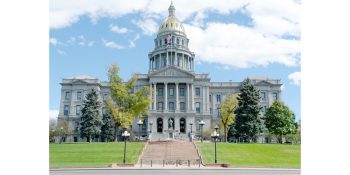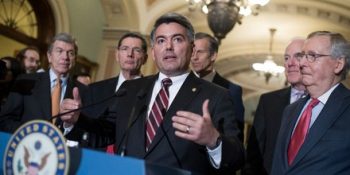Dems Swat Down GOP Efforts to Upset Careful Balance of ‘Worthy and Competing Priorities’
After a debate that began at lunchtime Thursday, the House gave preliminary approval this morning to a balanced state budget for the 2017-18 fiscal year, which begins July 1.
“This budget achieves a delicate balance between a variety of worthy and competing priorities,” said Rep. Millie Hamner, D-Dillon, vice chairwoman of the legislative Joint Budget Committee, which worked nearly five months to prepare SB17-254. “With our budget restrictions we simply cannot adequately address every need.”
House Democrats spent much of Thursday’s 10-hour debate and again in this morning’s approval of the report of the committee of the whole swatting down GOP attempts to amend the “long bill,” SB17-254, by gutting funding for critical state programs. Republicans proposed amendments totaling $887 million in transfers to transportation, but all they accomplished was to expose their oft-repeated myth that Colorado is able to fully fund its transportation system without crippling other parts of the budget. Their amendments would have eviscerated education, healthcare and critical services for those with disabilities.
One of the ugliest GOP efforts was an amendment that called for a doubling of Medicaid copays to fund transportation.
“We have had a bipartisan transportation effort that has come through this chamber,” Speaker Crisanta Duran told the House on Thursday, alluding to HB17-1242, the sweeping transportation plan that’s now in the Senate. “But instead we now have an amendment coming forward that says, ‘You know what? We’re going to fill those potholes and we’re going to deal with traffic congestion and we’re going to do it on the backs of those who are sick and we’re going to do it on the backs of those who are vulnerable.’ ”
The House did adopt a variety of significant amendments, seven sponsored by Democrats, two by Republicans and two with bipartisan sponsorship. They include:
· Majority Leader KC Becker, D-Boulder: $16.3 million from marijuana revenues for affordable housing grants and loans.
· Rep. Jon Becker, R-Fort Morgan: $9.45 million from a telecoms fund to boost rural broadband service.
· Reps. Jonathan Singer, D-Longmont; Brittany Pettersen, D-Lakewood; Tracy Kraft-Tharp, D-Arvada; and Clarice Navarro, R-Pueblo: $8 million from marijuana taxes for substance abuse prevention and treatment services.
· Rep. Phil Covarrubias, R-Brighton: $7.7 million for career and technical education by transferring money within the Department of Education and the Department of Higher Education.
· Reps. Diane Mitsch Bush, D-Steamboat Springs, and Jim Wilson, R-Salida: $5.4 million for ambulance services for rural Colorado by moving existing funding within the Department of Health Care Policy and Financing.
· Rep. Dan Pabon, D-Denver: $4 million from marijuana taxes for marijuana research grants.
· Reps. James Coleman, D-Denver; Leslie Herod, D-Denver; Jovan Melton, D-Aurora; Dominique Jackson, D-Aurora; Janet Buckner, D-Aurora; and Tony Exum, D-Colorado Springs: $1.5 million from marijuana tax revenue to increase funding for the Tony Grampsas Youth Services Program, which funds youth development programs statewide.
· Rep. Melton: $1.5 million for the state film incentives program.
· Reps. Exum and Barbara McLachlan, D-Durango: $1.1 million for firefighter safety. Republicans fought against the amendment, which provides fire safety equipment.
· Reps. Exum, Daneya Esgar, D-Pueblo, and Joann Ginal, D-Fort Collins: $1.1 million from the governor’s office for the Low-Income Energy Assistance Program weatherization operation.
“As a member of the Joint Budget Committee, tradition prevented me from supporting individual amendments to the long bill,” said Rep. Dave Young, D-Greeley. “But I must say this package of amendments has improved a tight and very difficult budget.”
After a recorded vote likely to take place on Monday, the long bill will head back to the Senate.




